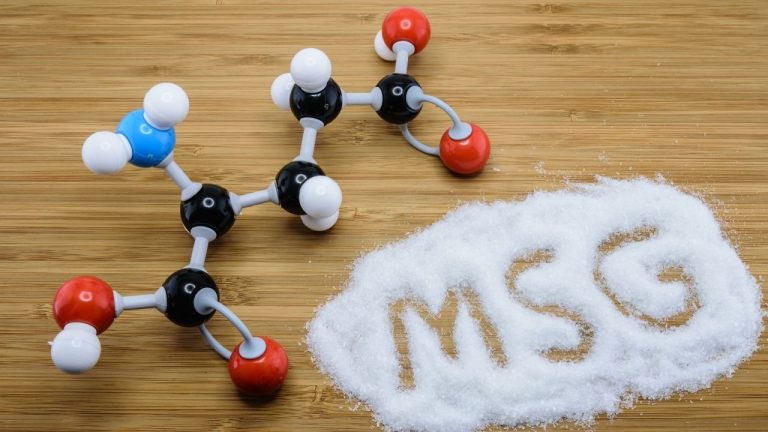MSG is a dangerous ingredient that is often found in food. It can cause various health problems, including headaches, nausea, and heart problems. In this blog post, we will discuss the dangers of MSG and how to avoid it in your food.
Why is msg terrible for your health?
MSG is a common food additive that has been linked to several health concerns. Short for monosodium glutamate, MSG is a salt of the amino acid, glutamic acid. It is often used as a flavor enhancer in processed foods. While MSG occurs naturally in some foods, the levels are generally low and not a cause for concern. However, when MSG is added to foods, it can be present at high levels. Some people are sensitive to MSG and may experience symptoms like headaches, sweating, flushing, and chest pain after consuming it. In severe cases, MSG can trigger an asthma attack. Additionally, MSG has been shown to affect brain function adversely and may be harmful to developing brains. It is essential to be aware of the foods containing MSG and limit your intake for these reasons.

How do you know if something has MSG in it?
Most people know MSG as the stuff that gives Chinese food its “umami” flavor. But MSG is also added to many other processed foods as a flavor enhancer. So how can you tell if something has MSG in it? Unfortunately, there’s no easy answer. The FDA requires that any food containing added MSG say so on the label. However, there are a few loopholes. For example, foods containing hydrolyzed protein or autolyzed yeast extract can have MSG even if it’s not listed on the label. And then there are all the other names for MSG, like “glutamic acid” or “yeast extract.” So unless you’re a chemical engineer, it can be pretty tricky to figure out if a food contains MSG.

The best way to avoid MSG is to eat whole, unprocessed foods. Ask your server if the food contains MSG when you’re eating out. And when you’re shopping for groceries, look for products that are labeled “No MSG” or “No Added MSG.” By taking these simple steps, you can help protect your health and avoid the potential risks of MSG.
Why should I avoid eating foods with MSG
As we mentioned before, MSG has been linked to several health concerns. It can cause headaches, nausea, and heart problems in some people. Additionally, MSG has been shown to affect brain function adversely and may be harmful to developing brains. For these reasons, it is essential to limit your intake of MSG foods.

Why are there different types of MSG
There are two different types of MSG: synthetic and natural. Manufactured MSG is made in a laboratory and is often used as a flavor enhancer in processed foods. Natural MSG, on the other hand, occurs naturally in some foods. For example, you can find it in seaweed, tomatoes, and cheese. While natural MSG is generally considered safe, synthetic MSG has been linked to several health concerns. So it’s essential to be aware of the difference between the two and limit your intake of artificial MSG.
Foods that contain MSG and how to avoid them
If you’re trying to avoid MSG, you’ll need to be vigilant about reading labels. Many processed foods contain MSG, even if it’s not listed as an ingredient. Familiar sources of MSG include bouillon cubes, potato chips, seasoning packets, frozen meals, canned soups, and restaurant meals. While some people are sensitive to MSG and may experience headaches or other symptoms after consuming it, others do not react. If you’re avoiding MSG for health reasons, it’s best to err on caution and steer clear of any food that may contain it.

Some common foods that may contain MSG include:
– Processed meats like bacon, ham, and hot dogs
– Canned soups and broth
– Instant noodles and ramen
– Potato chips and other packaged snacks
– Seasoning mixes, such as taco seasoning or ranch dressing mix
– Frozen dinners
– Condiments like soy sauce and teriyaki sauce
What are the dangers of consuming too much MSG
While MSG is generally considered safe, consuming too much of it can lead to several health problems. These include headaches, nausea, heart palpitations, and asthma attacks. Additionally, MSG has been shown to affect brain function adversely and may be harmful to developing brains. For these reasons, it is essential to limit your intake of MSG foods. If you experience any adverse effects after consuming foods with MSG, it’s best to avoid them in the future.
Frequently Asked Questions
What are the effects of MSG on the digestive system?
One of the most common concerns is that MSG can cause digestive problems. Some people believe that it can lead to indigestion, heartburn, and even nausea. However, there is no concrete evidence to support these claims. The FDA has determined that MSG is safe for human consumption. While some people may experience minor digestive discomfort after eating MSG foods, it is unlikely to cause any severe health problems.
What are the side effects of MSG?
Some people are sensitive to MSG and may experience headaches or other symptoms after consuming it. However, these reactions are relatively rare. Most people can consume foods with MSG without experiencing any side effects.
Can pregnant women eat food with MSG?
Pregnant women should avoid eating large amounts of MSG. While the FDA has determined that MSG is safe for human consumption, pregnant women are advised to limit their intake of foods that contain it. It is because MSG can adversely affect brain function and may be harmful to developing brains.
Can infants eat food with MSG?
No, infants should not eat food with MSG. The same goes for young children and pregnant women. This is because MSG can adversely affect brain function and may be harmful to developing brains.
What are the long-term effects of consuming MSG?
There is no evidence to suggest that MSG has any long-term health effects. However, some people believe that it can lead to a number of problems, including headaches, nausea, and asthma attacks. Additionally, MSG has been shown to affect brain function adversely. For these reasons, it is essential to limit your intake of MSG foods. If you experience any adverse effects after consuming foods with MSG, it’s best to avoid them in the future.
Conclusion
MSG is an ingredient that is added to food to enhance flavor. While it is generally considered safe, some people believe it can cause several health problems. These include headaches, nausea, and asthma attacks. Additionally, MSG has been shown to affect brain function adversely. For these reasons, it is essential to limit your intake of MSG foods. If you experience any adverse effects after consuming foods with MSG, it’s best to avoid them in the future.



